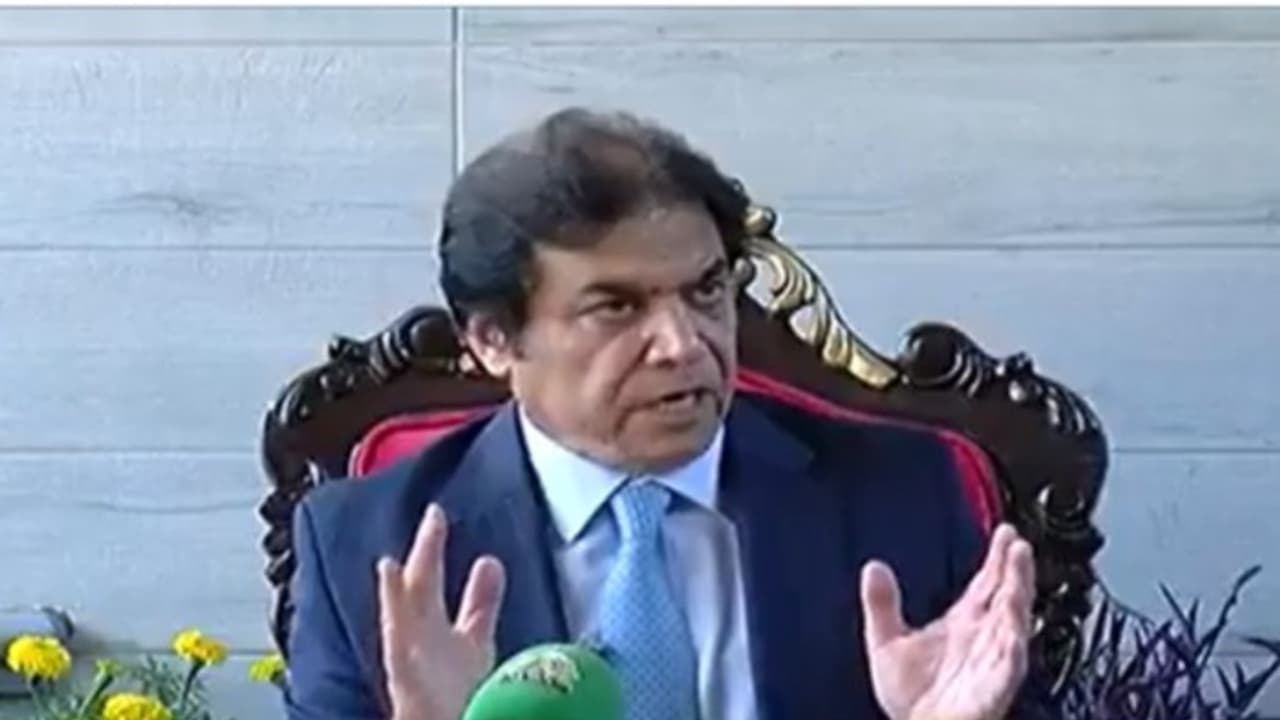Pakistan’s Hanif Abbasi threatened India with nuclear retaliation after New Delhi suspended the Indus Waters Treaty and cut ties following the Pahalgam attack. Abbasi warned Pakistan’s missiles are ready and aimed directly at India.
In an alarming escalation of tensions between India and Pakistan, Pakistani minister Hanif Abbasi has openly threatened New Delhi with nuclear retaliation. His warning came after India announced a series of strong diplomatic and economic actions in response to the deadly Pahalgam terror attack that killed 26 people on April 22.

Speaking at a press conference in Islamabad, Abbasi declared that Pakistan’s nuclear weapons, including the Shaheen, Ghaznavi, and Ghauri missiles, were "kept only for India" and not for mere display. "The 130 weapons we possess are not just kept as models — and you have no idea in which parts of Pakistan we have positioned them," he said.
Abbasi warned that if India dares to suspend the Indus Waters Treaty of 1960 and block Pakistan’s water supply, it should "prepare for a full-scale war." He stressed that Pakistan’s missile systems were fully operational and strategically placed across the country, aimed directly at India.
"If they stop the water supply to us, then they should be ready for a war. The military equipment we have, the missiles we have, they're not for display. Nobody knows where we have placed our nuclear weapons across the country," Abbasi said. "I say it again, these ballistic missiles, all of them are targeted at you."
Abbasi’s comments followed India's major steps on Wednesday, which included expelling Pakistani military attachés, closing the land transit post at Attari, halting the Indus Waters Treaty, and cancelling all visas for Pakistani nationals. These actions were taken after the terror group The Resistance Front — a proxy of the banned Lashkar-e-Taiba — initially claimed responsibility for the Pahalgam attack, but later distanced itself.
Mocking India's retaliatory moves, Abbasi claimed that New Delhi had already started to feel the consequences. Referring to the airspace restrictions Pakistan imposed on Indian flights, he said, "If things were to continue like this for another 10 days, the airlines in India would go bankrupt."
He accused India of quickly blaming others without introspection. "Whenever an incident happens, instead of holding their own agencies accountable, India puts sanctions on another country," he said. "First, give answers for your own actions; first, hold yourself accountable before pointing fingers at us."
Abbasi insisted that Pakistan had responded firmly to India's measures by shutting down trade, stopping the water flow, and preparing for any potential military confrontation.
The Pahalgam attack, where gunmen stormed a group of tourists at the Baisaran meadow, has reignited tensions in the already volatile relationship between the two countries. It is considered one of the deadliest attacks in the region since the 2019 Pulwama terror strike.
While India maintains that Pakistan-based terror groups were behind the Pahalgam assault, Islamabad has denied any involvement. However, Abbasi’s latest threats have only added fuel to the fire, signaling a dangerous turn in Indo-Pak relations.
Diplomatic observers warn that the situation remains fragile, and any miscalculation from either side could lead to a catastrophic conflict.
Pakistan’s Hanif Abbasi threatened India with nuclear retaliation over Indus Waters Treaty suspension and severed trade ties over the Pahalgam attack.


